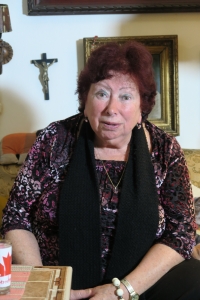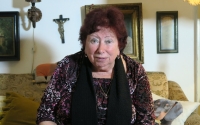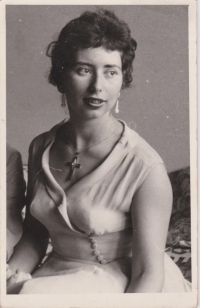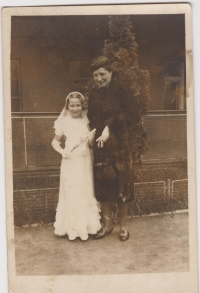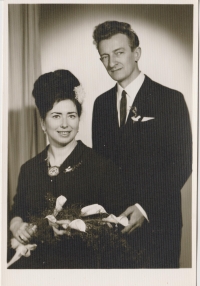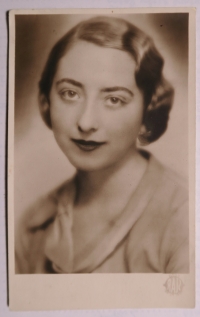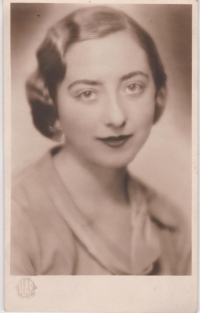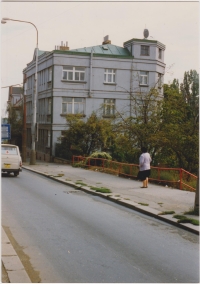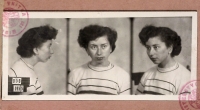I used to help my mom as a liaison to relay messages

Download image
Alexandra Součková, née Kovářová, was born on December 12, 1935 in Prague. Her father Josef was a dentist, her mother Marie Blažena worked as a clerk. The family lived in a villa in Prague’s Holešovice district, not far from the place where paratroopers Gabčík and Kubiš assassinated Heydrich during the Protectorate. Alexandra Součková experienced the Gestapo search, arrest and execution of her uncle, a resistance fighter. After the liberation by the Red Army, Soviet General Koněv lived in their house for a while. In 1946, while she was studying at the gymnasium, her father died. Her mother, who spoke several languages, joined the Prague office of Air France for existential reasons. Through this airline, Alexandra’s mother began to send reports on the mood of the population and the economic situation in the Czech Republic to Radio Free Europe after the February communist coup. She continued her activities after the closure of the Air France office in Prague through contacts at the French embassy. The young Alexandra and her friend Pavel Blazer also participated in the activities as liaison. On the basis of denunciations, they were all arrested in the spring of 1955. Alexandra was the first to be arrested on May 19, when a group of State Security officers, on their way to an English course, stuffed her into a car and drove her blindfolded to the detention centre in Ruzyně. There she spent five months in solitary confinement and underwent a series of interrogations. The greatest hardships were the lack of food and the cold. The public trial took place on October 18, 1955 in Prague. Alexandra Součková received five years for spying, as well as forfeiture of property and loss of civil rights for three years. The court sent her mother to prison for 13 years and her friend Pavel for three years. On appeal, the Supreme Court in Prague reduced Alexandra’s sentence by one year in November 1955, taking into account her minority. Součková served the greater part of her four-year sentence in the fields around the Želiezovce camp in southern Slovakia. There she experienced inhuman living conditions and, at the time of the Hungarian events, the attempted escape of the prisoner Dagmar Šimková to Hungary. From Želiezovce she was transferred to Pardubice, where she worked in the production of televisions in Tesla until the end of her sentence. She was released on May 15, 1959. Her mother, Marie Blažena, was released a year later due to a presidential amnesty. After returning from prison, Alexandra searched for a job for a long time, and was taken to work in the press shop at ČKD Praha. Later she worked as a warehouseman at OPBH, and at the same time she graduated from the Faculty of Civil Engineering at the Czech Technical University. In the seventies, thanks to this, she found a better job at the Prague Construction Renovation. In the meantime she got married and had two children. The State Security officers were still watching her in the 1960s. They offered her cooperation twice, but she always refused. She received an award as a participant in the anti-communist resistance.
